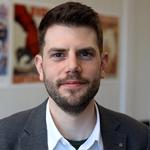
Alun Thomas
Associate Professor
Alun's research interests cover the history of Russia and the Soviet Union and Central Asia; imperialism, colonialism, decolonisation, refugeedom, itinerance; nomadism,nationalism, state-building, urbanisation, memory and patrimonialisation.
Alun's profile